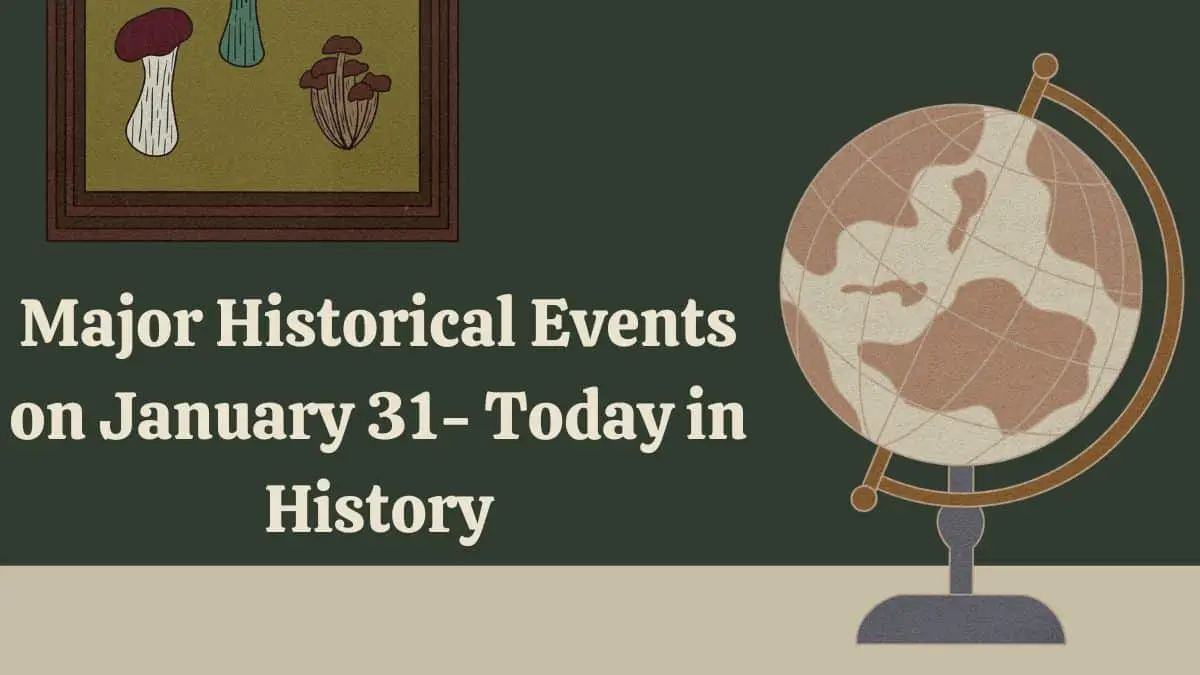January 31 in history has been a day marked by important events from various centuries. From groundbreaking scientific discoveries and political milestones to cultural achievements, January 31st holds a diverse range of historical importance. Explore the stories behind these events that have left an indelible mark on our past and continue to influence our present. Here is list of some major historical events that happened on January 31.
Major Historical Events on January 31 – Today in History
1578: Battle of Gembloux
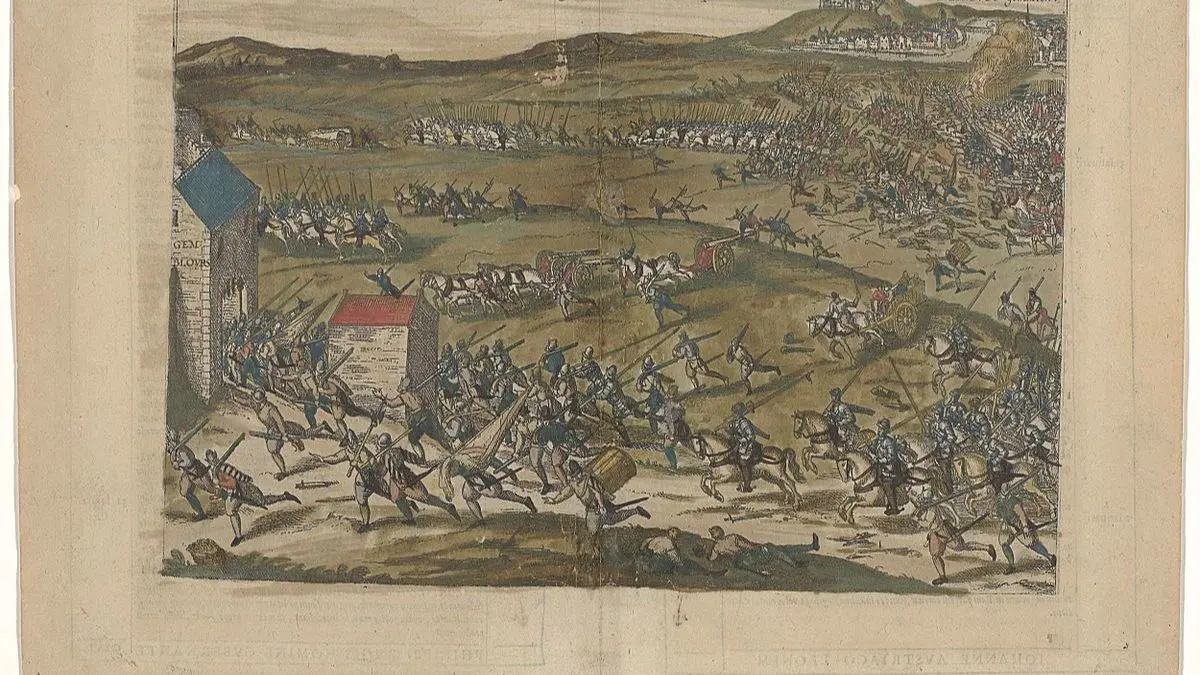
The Battle of Gembloux was a significant event during the Eighty Years’ War and Anglo-Spanish War. Spanish forces, led by Don John of Austria, emerged victorious against a diverse rebel army composed of Dutch, Flemish, English, Scottish, German, French, and Walloon soldiers.
1616: Cape Horn Rounded
In 1616, Dutch explorers Jacques Le Maire and Willem Corneliszoon Schouten achieved a remarkable maritime feat by rounding Cape Horn for the first time. They named this treacherous maritime passage “Cape Hoorn” after Schouten’s hometown.
1747: First Venereal Clinic
The opening of the first venereal diseases clinic at London Lock Hospital in 1747 was a significant development in healthcare. It marked a growing awareness of sexually transmitted infections and the need for specialized medical facilities to address them, reflecting changing societal attitudes toward healthcare and hygiene.
1779: Charles Messier’s M57
French astronomer Charles Messier made a notable addition to his catalog in 1779 by including M57, commonly known as the Ring Nebula in the constellation Lyra. This contribution to astronomy advanced our understanding of celestial objects.
1846: Milwaukee Unification
The unification of Juneautown and Kilbourntown in 1846 to create the City of Milwaukee was a pivotal moment in the city’s history. This merger laid the foundation for the development of Milwaukee into a major urban center with a rich cultural and industrial heritage.
1851: SF Orphan’s Asylum
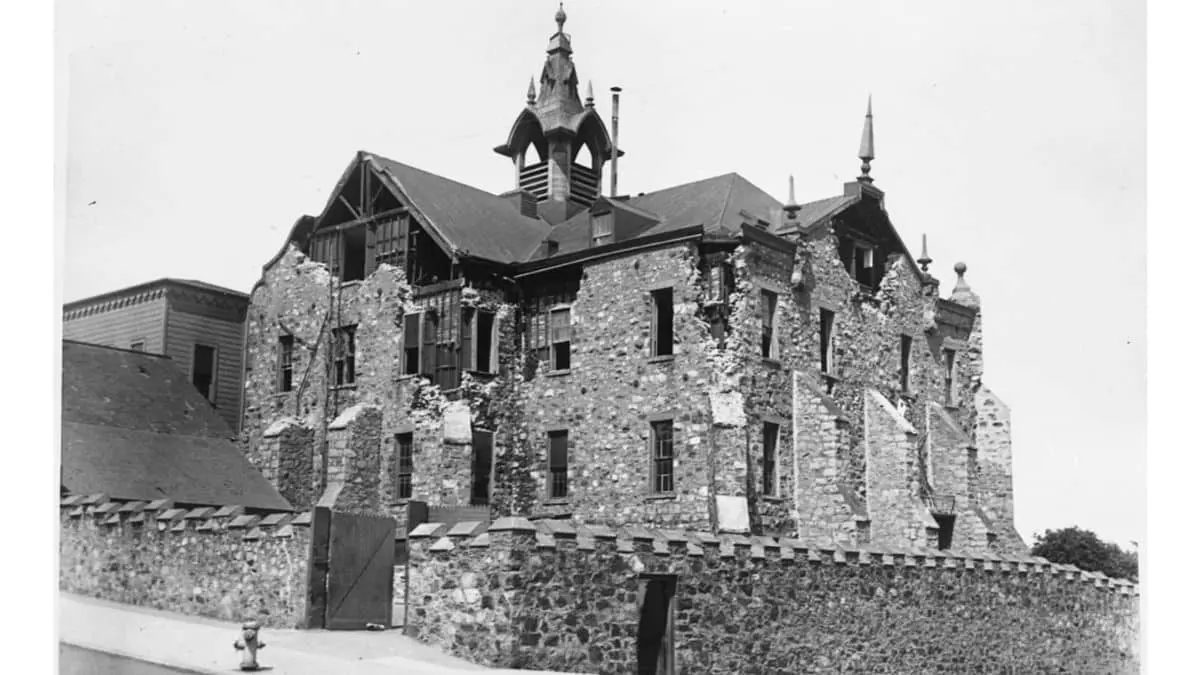
In 1851, the establishment of the San Francisco Orphan’s Asylum marked an important milestone in California’s history. It became the state’s first orphanage, providing care and support to vulnerable children in the growing city of San Francisco.
1863: 1st Black Civil War Regiment
The muster of the first black Civil War regiment, the South Carolina Volunteers, in 1863, was a crucial step in the Union’s efforts during the American Civil War.
1891: Porto Republican Attempt
The attempt at a Portuguese republican revolution in Porto in 1891 was a bold move towards political change.
1905: 1st 100 mph Car
In 1905, A G MacDonald achieved a remarkable feat by driving the first automobile to exceed 100 mph in Daytona Beach. This event marked a milestone in automotive history, showcasing the potential for high-speed travel that would become a defining characteristic of the modern era.
1906: Strong Colombian Earthquake
In 1906, Colombia experienced a devastating earthquake with a magnitude of 8.6 on the Richter scale. This natural disaster had a profound impact on the country, leading to widespread destruction and loss of life.
1915: Poison Gas at Bolimów
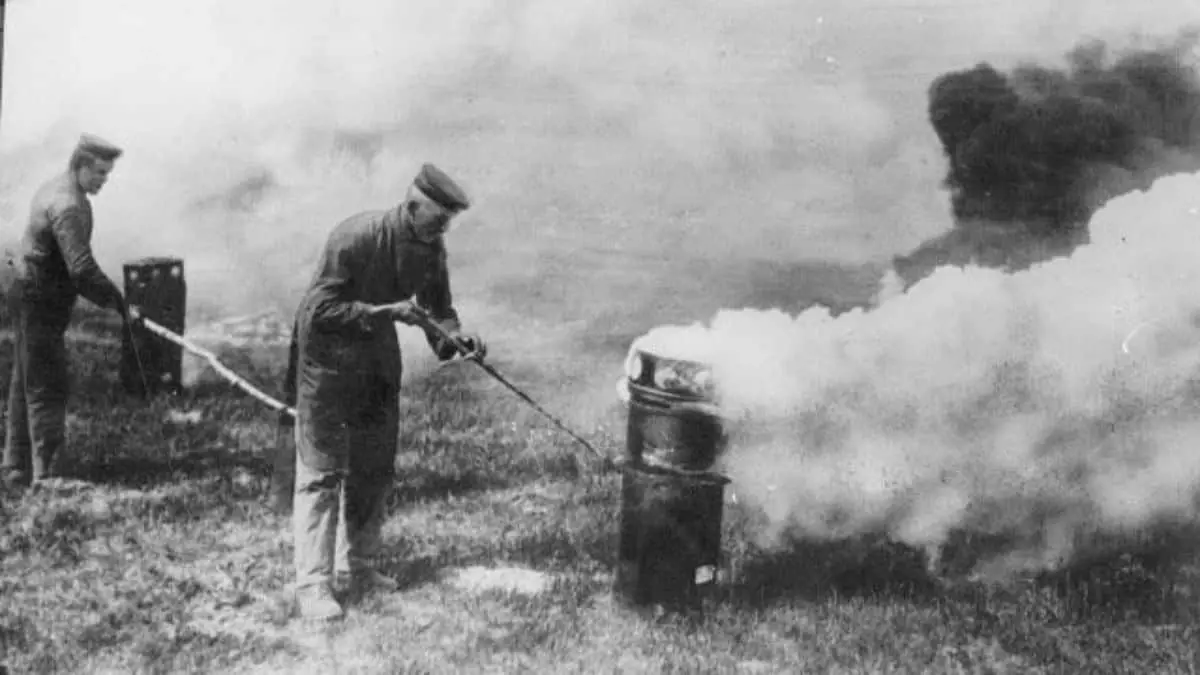
The large-scale use of poison gas by Germany during World War I in the Battle of Bolimów against Russia in 1915 marked a grim escalation in the conflict. This event highlighted the devastating consequences of modern warfare.
1936: “Green Hornet” Radio Debut
In 1936, the “Green Hornet” radio show made its debut on WXYZ Radio in Detroit, captivating audiences with its thrilling adventures. This popular radio program introduced listeners to the iconic crime-fighting duo.
1944: 1st Ranger Battalion at Cisterna
During World War II, the 1st Ranger Battalion, known as Darby’s Rangers, faced a dire situation in the Anzio campaign, resulting in their destruction behind enemy lines during the Battle of Cisterna, Italy.
1945: Eddie Slovik Execution
In 1945, US Army private Eddie Slovik faced a historic execution for desertion, marking the first such execution of an American soldier since the Civil War.
1949: 1st TV Soap Opera
In 1949, television history was made as the NBC station in Chicago broadcast “These Are My Children,” the first-ever television daytime soap opera. This groundbreaking program laid the foundation for the enduring genre of soap operas.
1958: American Satellite Detects Radiation Belt
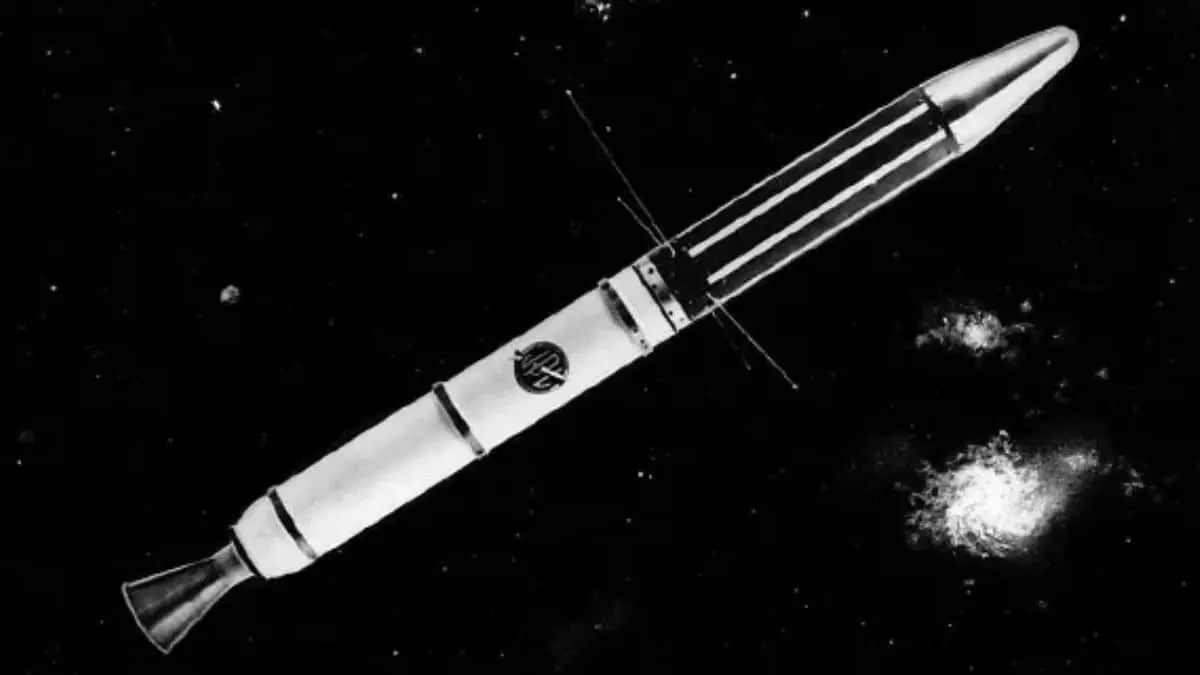
The Cold War’s Space Race took a significant turn in 1958 when the first successful American satellite detected the Van Allen radiation belt, revealing valuable information about Earth’s radiation environment and contributing to space exploration.
1958: US Launches Explorer 1
Simultaneously, in 1958, the United States launched its first artificial satellite, Explorer 1, into space, marking a pivotal moment in the country’s space endeavors and contributing to the Space Race’s competitive atmosphere.
1961: Ham the Chimpanzee in Space
In 1961, Ham the chimpanzee made history as the first primate in space, traveling 158 miles aboard Mercury/Redstone 2. This milestone marked progress in human space exploration and our understanding of the challenges faced by astronauts.
1968: Record High Barometric Pressure
In 1968, an unusual meteorological event occurred when Agata, USSR, experienced a record high barometric pressure of 1083.8 mb (32″). This atmospheric anomaly stands out as a meteorological curiosity.
1971: Apollo 14 Launch
The Apollo 14 mission in 1971 marked a significant achievement as it became the first lunar landing in the lunar highlands, expanding our understanding of the moon’s surface and geological features.
1988: Doug Williams in Super Bowl

In 1988, Doug Williams became the first African American quarterback to play in a Super Bowl and led the Washington Redskins to victory in Super Bowl XXII, breaking barriers in professional football and leaving an indelible mark on the sport’s history.
1990: 1st McDonald’s in Soviet Union
In 1990, a symbolic moment occurred as the first McDonald’s restaurant in the Soviet Union opened in Moscow, signaling the spread of Western culture and fast-food chains into the previously closed-off Soviet market.
2000: Alaska Airlines Flight 261 Crash
In 2000, tragedy struck as Alaska Airlines Flight 261, an MD-83 experiencing horizontal stabilizer problems, crashed into the Pacific Ocean off the coast of Point Mugu, California, resulting in the loss of all 88 lives aboard.
2003: Waterfall Rail Accident
In 2003, the Waterfall rail accident near Waterfall, New South Wales, Australia, served as a somber reminder of the importance of railway safety and the potential consequences of transportation accidents.
2015: Lydia Ko World No. 1
In 2015, 17-year-old Lydia Ko of New Zealand achieved a historic milestone by becoming the youngest golfer in men’s or women’s golf history to be ranked No. 1 in the world, showcasing her exceptional talent and dedication to the sport.
2018: Blue Moon and Lunar Eclipse
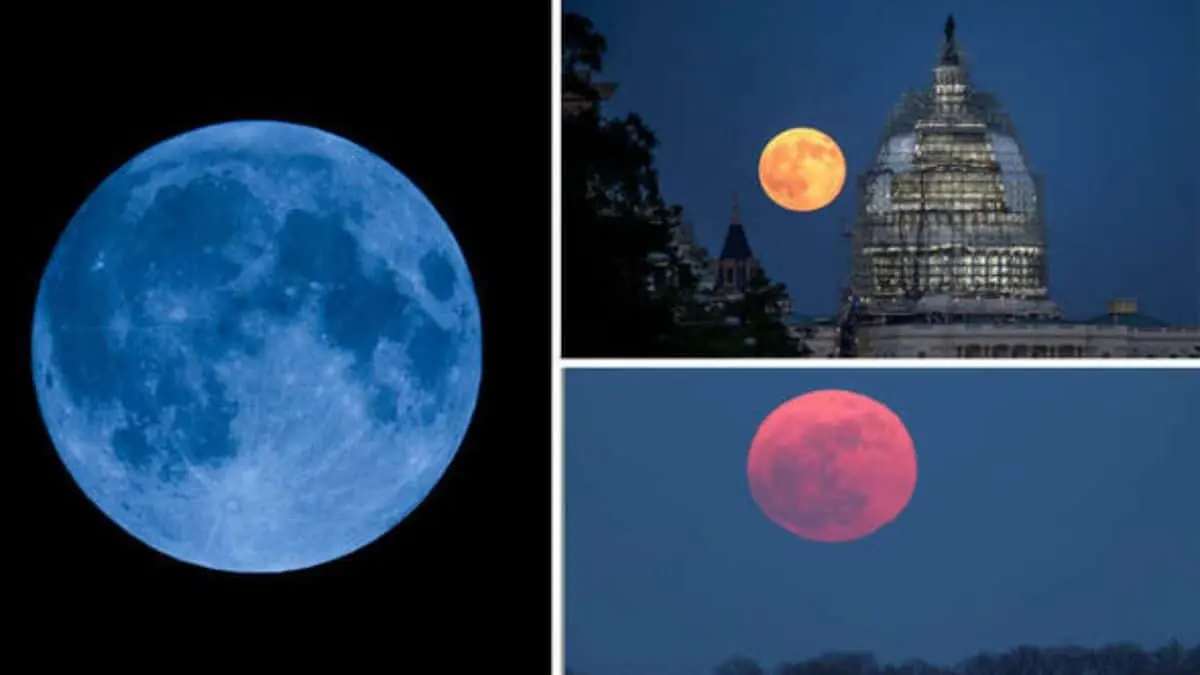
In 2018, a rare celestial event occurred when both a blue moon and a total lunar eclipse coincided, captivating skywatchers around the world with this astronomical spectacle.
2020: UK Leaves EU
In 2020, the United Kingdom’s long-standing membership within the European Union ceased in accordance with Article 50, marking a historic moment in the country’s relationship with the EU after 47 years of membership.
2023: Last Boeing 747 Delivered
In 2023, the aviation industry witnessed the end of an era as the last Boeing 747, the first wide-body airliner, was delivered, symbolizing a shift in the aviation landscape towards more modern and efficient aircraft.
2023: Pope Francis in Kinshasa
Additionally, in 2023, Pope Francis made history with his visit to the Democratic Republic of Congo, becoming the first pope to visit the country since 1985. This visit held significant religious and diplomatic importance for the region and the Catholic Church.
Also Read: Major Historical Events on January 30 – Today in History
